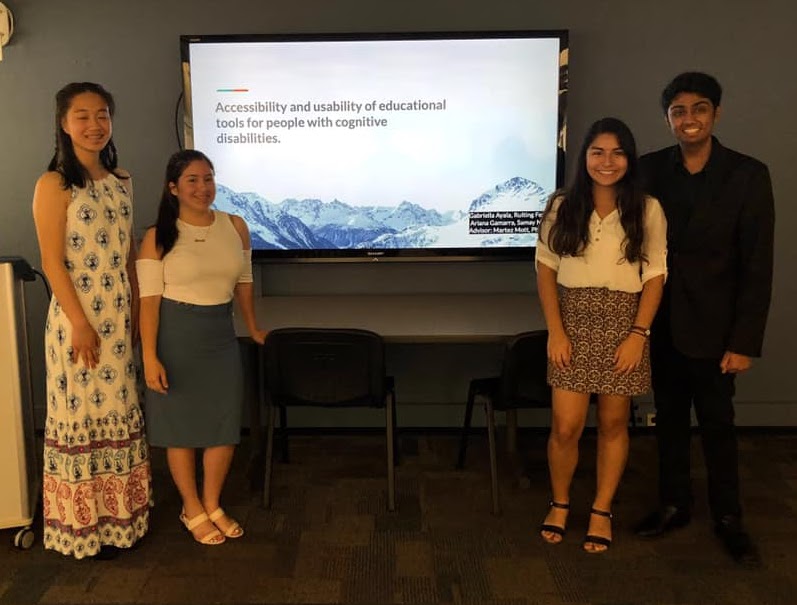i3 Scholars: Gabriella Ayala, Ariana Gamarra, Samay Nathani, Ruiting Feng
Research Advisor: Dr. Martez Mott, Microsoft Research
Abstract:
eLearning platforms are a necessary means of education all around the world today and reliance on online educational software has only grown since the Coronavirus Pandemic. According to the World Economic Forum, over 1 billion children in over 180 countries are dependent on online education due to school closures. However, one of the challenges associated with using online education is accessibility for people with Cognitive Disabilities (CDs). According to the CDC, in the US alone, one in six children has a developmental impairment. With a dramatic change in education, people with CDs will face challenges associated with using eLearning platforms.Considering how eLearning platforms are a necessity for education, these platforms need to meet accessibility and usability guidelines for all of their users. Our research is broken up into two phases: we developed accessibility guidelines for accessing the web and digital content for eLearning platforms by combining ideas from previous accessibility research; then, we use these guidelines to heuristically evaluate Khan Academy, a popular and free eLearning platform. We heuristic evaluated three different pages of Khan Academy and analyzed how accessible the eLearning platform is. These results will provide details on ways that Khan Academy, as well as other eLearning platforms, can improve their interfaces and features to increase accessibility for users with cognitive impairments.
